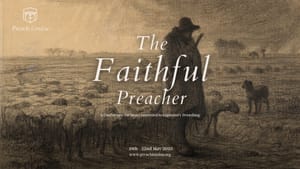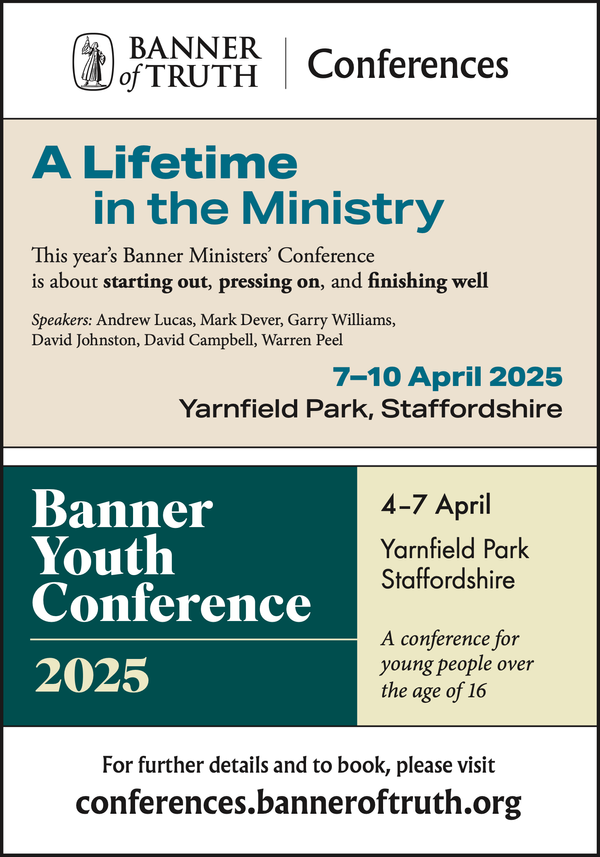Recently it was my privilege to meet a man who, five years earlier, had been converted to Christ after fifteen years as a heroin addict. The Lord’s means to deliver and save him was an open-air preacher who had faithfully preached Christ outside Whitechapel Tube Station in London
I
t was in Whitechapel, one Sunday afternoon 150 years ago, in April 1853, that a young Scottish barrister called John MacGregor, on his way to a Bible class, happened upon a man preaching in the open air.
The preacher was struggling to deal with a Roman Catholic heckler in the gathered crowd. With a sharp mind and a warm heart, John was ideally suited to enter the fray, which he soon did. He later wrote in his diary that he felt the hour spent conversing with the Catholic man had ‘done some good’.
So began a concern for open-air outreach. John MacGregor spent every hour of his spare time in all sorts of evangelistic and philanthropic endeavour. But for the rest of his days the chief burden of his heart was to reach out to lost souls through gospel preaching.
Street evangelism
Within two months of his Whitechapel encounter, MacGregor had formed a committee of like-minded men who all felt concerned to see street evangelism both encouraged and regulated. On 3 June 1853, the work of ‘The Open-Air Mission’ (OAM) began.
Who can say just how many perishing souls have had eternal ‘good’ done to them through the ministry of this society over the last one hundred and fifty years?
Throughout that time, an annual report has been produced by successive mission secretaries, and they make fascinating and thrilling reading, with stories galore of front- line gospel labour.
Responses to the message of salvation were of every description — from violent opposition, through passive indifference, to glorious conversion, as brands were plucked from the burning.
In many ways very little has changed. Sin is still ruining lives; the natural man still does not receive the things of the Spirit of God, for they are foolishness to him; and, praise God, the Son of Man still has power on earth to forgive sins.
Go out quickly
From comments made in the reports over the first twenty years of the mission’s existence, it appears that the church by and large was disdainful of open-air outreach.
The wheel seems to have turned full circle. Many Christians today consign ‘street preaching’ to a bygone age. Many preachers conduct their ministries as though there were a clause in their call which required them to ‘Preach the Word … in season and out of season’, but not inside and outside.
John MacGregor lived in a day when more than 50% of British people attended church regularly. Yet he still had a burden to reach ‘the other half’. Should we not seek to rouse ourselves — to go outside our church comfort zones and preach the gospel, knowing that today the churchgoing population has fallen to 5%?
Should we not feel ashamed that, all too often, we just do not care enough to obey the call to ‘go out quickly’ with the message we claim to believe is ‘the power of God to salvation’?
Supporters
Illustrious supporters of the work over the years have included Lord Shaftesbury, who was a good friend of John MacGregor and regularly preached in the open-air when his busy schedule allowed.
He also spoke a number of times at the annual meetings which, until recently, were always held in London. Another speaker at some of those meetings was C. H. Spurgeon.
In his famous work Lectures to my Students he included two chapters on open-air preaching and even described OAM as ‘that excellent society’.
He also included a rebuke and a challenge to the ministers of his own day: ‘no sort of defence is needed for preaching out of doors, but it would need very potent arguments to prove that a man had done his duty, who has never preached beyond the walls of his meeting house’.
It is humbling to know of this link with such great and godly men.
OAM today
The mission currently has eleven full-time evangelists. Each one preaches in different local towns on a regular basis. Christians from a variety of Evangelical churches usually support these opportunities, sending teams of believers out to engage with the world.
There are also 21 men who are ‘associates’ with the mission. They go out in their sparetime, preaching and distributing tracts. One preaching in Pontypridd recently had the joy of meeting an eleven-year-old girl who was saved, having stood with two friends listening to the message.
From the earliest days of the mission, teams of workers have joined together for large events such as the Epsom Derby and Royal Ascot. Many racecourses and fairgrounds continue to draw crowds, and those encountered are usually people who would never darken the doors of a church.
Literature
City-centre opportunities have always been fruitful. For a week in June each year, a team of evangelists and volunteers preach in London locations like Speakers’ Corner, Covent Garden and Leicester Square.
Last year, more than a hundred meaningful conversations were recorded during the course of the London outreach. This included a young man called Tobias from a Christian background, who was on holiday from Germany. He is still in contact with one of the team via e-mail and gives every indication of having been saved.
The Lord continues to open many other doors for sharing the gospel. The evangelists regularly visit prisons, take school assemblies, and speak at family services. They also help to run three Bible exhibitions and, beginning this year, an exhibition on Pilgrim’s Progress as well.
The mission produces much evangelistic literature. Over 444,000 tracts were given away in 2002, and around 2,500 Gospels of John were given out or sent to those who wanted to know more about the Saviour.
Realising that not everyone is willing to read these days, the mission has produced a gospel message on cassette, CD, and, most recently, on two twenty-minute videos.
Every item of literature contains the mission address with the offer of a free Bible study. Around fifty people each month contact the office in London asking for this study.
Violent behaviour
One was a woman called Grace who, until fairly recently, was receiving quarterly Bible reading notes from the office, having professed faith about five years earlier. The address where these were sent was a women’s prison near Maidstone.
Grace wrote to say that she would be able to purchase her own reading notes from now on as she was being released. Intrigued to know her story, a letter was dispatched enquiring about her testimony.
The reply revealed that Grace had served a long sentence for killing her boyfriend while in a drunken rage. Twice her prison term had been extended because of violent behaviour.
Then one day, while cleaning out a cupboard in another cell, Grace found a tract. Through what she read, Grace came to know the one who ‘is able to save completely those who come to God by him’.
Time would fail to tell of others who have recently come to the Lord through the simple, clear and direct approach used by the Open-Air Mission — a lady in Nuneaton saved after thirty years in the Jehovah’s Witnesses; a devout Sikh in Leicester converted after having been bitterly opposed to the gospel; and a young woman in Bilston suffering the ravages of drug addiction, who is now serving the Lord overseas.
Blessed work
John MacGregor wrote of open-air preaching in 1868, words which are still true today: ‘It sends men to church, to school, to read, to feel, to think and to pray, so it helps every other means of good.
‘Let those who will take part in such a blessed work burst through the false shame, which Satan ties up many hands with, cast aside the slothful habit with which the flesh paralyses even active spirits, and brave the sneer of the world, which must sneer if both it and they are consistent.
‘Once having begun they will not soon stop, for they are in a track well trodden by saints and martyrs, and sprinkled with the blood, even of the Lord Jesus Christ himself.’





